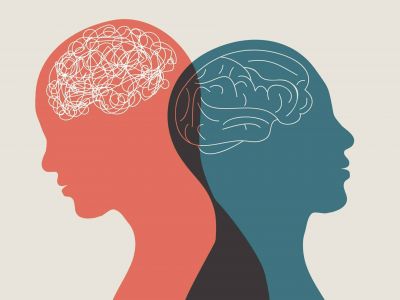Drug Addiction Rehab Center Near Nashville, TN
At Freeman Recovery Center near Nashville, Tennessee, we are a premier drug addiction rehab treatment center where compassionate care meets effective rehabilitation. At Freeman Recovery, we specialize in personalized treatment plans designed to heal the mind, body, and spirit. Our team is committed to guiding you through the recovery process with dignity and respect.
Freeman Recovery Center offers comprehensive drug abuse treatment programs and services, including medical detoxification, Partial Hospitalization Programs (PHP), Intensive Outpatient Programs (IOP), and general outpatient programs. These programs ensure that you receive rehab care created to meet your needs. To learn more about the drug addiction treatment we offer, contact us at Freeman Recovery by calling (615) 645-3677. Let us assist you in taking the first step toward recovery.
Education About Drug Addiction and Substance Use Disorder (SUD)
Drug addiction and SUD (substance use disorder) are complex conditions characterized by an inability to control or stop substance use despite its harmful effects. SUD impacts the brain’s structure and function, leading to intense cravings and compulsive behavior. The disorder often results from genetic, environmental, and psychological factors. Understanding these aspects is paramount for adequate treatment and recovery.
Education about SUD emphasizes the importance of recognizing the signs and symptoms early. Treatment typically involves a combination of behavioral counseling, medication-assisted treatment, twelve-step programs, and recovery support groups. By educating yourself about these aspects, you can better support those affected and advocate for comprehensive treatment approaches that handle the physical and psychological elements of addiction.
The Need for Drug Rehab Near Nashville, TN
Over the last two decades, drug addiction among Americans has skyrocketed to alarmingly high rates. With events like the opioid epidemic, the growing legalization of marijuana, and the nationwide Fentanyl crisis, it can be harder now than ever before to find relief from dependency. As a result, roughly 20 million Americans struggle with drug and alcohol dependency each year.
Those living in Tennessee have also felt these horrific nationwide woes. According to KFF.org, 5-8% of all Tennesseans reported having a substance use disorder in 2021. Even more disturbing, the youth of Tennessee are particularly affected by this crisis, as the same outlet reported that 3% of all adolescents struggled with a substance use disorder in 2021.
Just as the dealers are working overtime to keep people addicted, we at Freeman Recovery Center are dedicated to helping people break free of addiction. We have various addiction resources to guide our clients as they find a healthy pathway through life.

It’s time to reclaim your life
Contact our team to find out how we can help you.
Start your recovery journey today
Drug Addiction Rehab Treatment Centers Near Nashville, Tennessee
If you or a loved one is seeking Nashville Drug addiction treatment, numerous rehabilitation centers offer treatment, including detox and addiction counseling. Our facility offers support through every recovery stage, including inpatient, IOP, PHP, and outpatient treatment. Contact us at Freeman Addiction Recovery Center to explore your options, or call our team at (615) 645-3677 for guidance and support.
Drug Addiction Rehab and Treatment in Dickson
IOP, OP & PHP Center:
222 State St, Dickson, TN 37055
Open:
Monday – Friday, 8am – 9pm
In Dickson, Tennessee, our dedicated drug addiction rehab and treatment facility offers a range of services, including Partial Hospitalization Programs (PHP), Intensive Outpatient Programs (IOP), and general outpatient programs. This facility provides comprehensive care designed to support patients through various stages of recovery, ensuring they receive treatment and support close to home.
Drug Addiction Rehab and Treatment in Burns
Residential/ Inpatient & Detox Center:
1615 HWY 96, Burns, TN 37029
Open: 24/7
Freeman Drug and Alcohol Addiction Center offers specialized drug addiction rehab and treatment. Our facility offers detoxification and residential inpatient services, providing patients with a structured environment for recovery. The comprehensive care available here supports patients through the critical early stages of treatment, ensuring they receive the intensive support needed for lasting recovery.
Contact Freeman to Verify Your Insurance
How to Find a Drug Addiction Rehab Center Near Nashville
Finding a drug addiction rehab center near Nashville can be a crucial step toward recovery. Assess your treatment needs and preferences to ensure you choose the best facility. Use online recovery resources, check insurance coverage, and verify facility credentials. You can find a center supporting your wellness by evaluating your options. Here’s a step-by-step guide:
- Assess Your Needs: Based on your situation, determine whether you need inpatient or outpatient treatment. Consider whether you prefer specific approaches, such as holistic recovery care, dual diagnosis treatment, or particular types of therapy.
- Search Online: Use search pages to find local rehab centers by searching terms like “drug rehab near Nashville” or “drug addiction treatment center in Nashville.”
- Use Online Directories: Explore online directories such as SAMHSA’s treatment locator or the National Helpline to find facilities specializing in addiction treatment.
- Check Insurance Coverage: Examine your policy to see which recovery centers are in-network. Contact your provider for a list of covered facilities.
- Verify Accreditation: Ensure the facility is accredited and licensed by checking organizations like CARF (Commission on Accreditation of Rehabilitation Facilities) or The Joint Commission.
- Read Reviews: Read reviews from former patients or their families on platforms like Google, Yelp, or healthcare review websites.
- Contact Facilities: Contact potential centers about their programs, treatment methods, success rates, staff credentials, and aftercare programs.
- Visit the Facility: If possible, visit the rehab center to see the environment and meet the staff in person to ensure it meets your expectations.
Is Drug Addiction a Disease?
Many who struggle with addiction experience feelings of shame since it is often incorrectly viewed as an active choice. However, addiction is a disease. According to Harvard Medical School, “An addicted person’s impaired ability to stop using drugs or alcohol has to do with deficits in the function of the prefrontal cortex- the part of the brain involved in executive function.”
Therefore, overcoming addiction is not a simple matter of willpower but rather a matter of getting proper treatment and therapy to counteract responses in the brain.
What is Dual Diagnosis And How Can It Be Approached?
In addition to the disease of addiction, a person’s substance use disorder can be partially caused or worsened by a mental health disorder. The co-occurrence of addiction and a mental health disorder is called dual diagnosis. For anyone that has ever struggled with mental health, it is understandable how this could perpetuate or exacerbate addiction. In fact, Cleveland Clinic shared that researchers found 50% of people who experience a substance use disorder will also have a mental health disorder and vice versa.
A person may turn to substances initially to numb or escape mental health symptoms, not realizing the risk of addiction. Additionally, someone with a substance use disorder may subsequently develop a mental health condition as life with addiction becomes challenging. Due to the strong link between mental health disorders and addiction, dual diagnosis treatment can be pivotal to achieving lasting addiction recovery. During dual diagnosis treatment at our drug rehab near Nashville, TN, our clients receive therapy that addresses both disorders.
What Drugs are Most Commonly Abused?
- Opioids are highly addictive drugs originally intended to control pain in medical settings, such as fentanyl, oxycodone, and morphine. Opioids also include illicit drugs, such as heroin, derived from morphine.
- Benzodiazepines are only legally available by prescription. These drugs are used to treat anxiety and related conditions. However, benzos are highly addictive due to how they work in the brain and the amounts needed to maintain effectiveness. Some examples include Xanax, Valium, and Klonopin. Accidental overdose of these drugs is a significant risk for those addicted.
- Hallucinogens are dangerous substances that distort a person’s perception, such as ketamine, LSD, Ecstasy, and PCP.
- Prescription stimulants are medications intended to improve concentration, such as Adderall and Ritalin.
- Methamphetamine is a highly addictive stimulant and synthesized drug that affects the central nervous system, causing significant physical and mental changes.
- Cocaine is a highly addictive, euphoria-producing stimulant made from the leaves of the South American coca plant.
- Marijuana (cannabis) falls under the categories of hallucinogens, depressants, and stimulants. This substance is derived from the cannabis plant containing tetrahydrocannabinol (THC), which produces mind-altering effects.
Drug Addiction Stats and Info in the Volunteer State
Between 2011 and 2021, Tennessee’s drug overdose death rate surged from 17.2 to 56.6 per 100,000 people, outpacing the national rate increase. Opioid use is the main factor driving this rise, as highlighted by a KFF analysis of CDC data.
Socioeconomic factors like income, education, and employment status significantly influence health outcomes, with higher rates of substance use disorders linked to unemployment and poverty, according to data from the Metro Public Health Department. In Tennessee, opioids contribute to 71.7% of all overdose deaths, with the state’s opioid overdose rate being 36.3% higher than the national average, according to data from the National Center for Drug Abuse Statistics. The TN Bureau of Investigation reported that the state ranks third nationally for prescription drug abuse, with about 5% of Tennesseans using pain relievers non-medically in the past year, mainly sourced from friends or relatives.

What Is a Tennessee Inpatient Residential Drug Addiction Treatment Program?
A Tennessee rehab for drug addiction inpatient residential treatment program provides a focused, immersive environment for patients dealing with substance use disorder. Patients live at the recovery facility full-time, engaging in detoxification, therapy, medical care, and therapeutic activities to manage the physical and psychological factors of addiction, free from daily distractions.
These programs provide 24/7 medical supervision and support, ensuring that patients receive immediate assistance if needed. The goal is to help patients achieve stability, learn coping skills, and create a stable foundation for continued recovery. By offering a comprehensive, immersive approach, Tennessee inpatient residential programs aim to give patients the tools and support they need to overcome addiction and build a healthier future.
Drug Addiction Dependency Signs and Symptoms To Look For in Peers
Knowing how to identify the signs and symptoms of drug addiction can give a person the upper hand when identifying addictive traits in both themselves and their loved ones. While many addiction signs and symptoms are unique to certain types of drugs or methods of use, there are still a few key factors a person can look for to identify addiction.
Drug addiction signs and symptoms may include but are not limited to:
- Cravings
- Risky behaviors
-
Loss of interest in once enjoyed activities
-
Anxiety
-
Financial trouble
-
Using simply to function
-
Withdrawing socially
-
Disheveled appearance
-
Tremors, shaking, and convulsions
-
Bloodshot eyes
-
Drug seeking behaviors
Drug Addiction Treatment Program Options in the Volunteer State
Tennessee, known as the Volunteer State, offers a variety of drug addiction treatment program options tailored to different needs. From inpatient and outpatient programs to specialized treatments and holistic approaches, these programs strive to deliver comprehensive care for patients seeking recovery. Exploring these options helps you find the right fit for effective treatment and support.
Nashville Drug Detox Program
A Nashville drug detox program provides a crucial first step for patients seeking to overcome substance use disorder. These programs are developed to help patients safely manage withdrawal symptoms under medical supervision, ensuring a comfortable and secure detoxification process. Nashville facilities offer inpatient and outpatient detox options, allowing patients to select the level of care that best suits their needs.
During detox, patients receive medical support to address both physical and psychological withdrawal symptoms, preparing them for further treatment. The goal is to stabilize patients and set a strong foundation for their recovery. By starting with a comprehensive detox program, patients can transition smoothly into subsequent phases of addiction treatment.
Middle Tennessee Residential Rehab for Drug Addiction
Drug addiction treatment centers in Middle Tennessee feature residential rehab facilities for drug addiction that offer a structured, supportive environment for patients. These programs provide 24/7 medical supervision, detoxification, therapy, and therapeutic activities. This comprehensive approach helps patients address addiction’s physical and psychological aspects while minimizing daily distractions and triggers.
Residential rehab in Middle Tennessee is designed to provide comprehensive care, helping patients build a strong foundation for long-term sober living. By offering a full continuum of care, these programs support patients throughout their recovery journey, supplying them with the strategies to achieve lasting sobriety.
Tennessee Holistic Treatment Programs for Drug Addiction
Tennessee offers holistic treatment programs for drug addiction that focus on the whole person, integrating physical, emotional, and spiritual aspects of recovery. These programs combine traditional therapies with alternative approaches such as yoga, meditation, acupuncture, and nutritional counseling. The goal is to provide patients with a comprehensive treatment plan that promotes overall well-being and supports long-term recovery.
Holistic treatment programs in Tennessee aim to manage the root causes of addiction and assist patients in developing coping skills and healthy habits. By incorporating various therapeutic methods, these programs enhance healing and foster a balanced lifestyle, ultimately guiding patients toward sustained sobriety and personal growth.
Nashville Medication Assisted Treatment (MAT) for Drug Addiction
Nashville offers Medication-Assisted Treatment (MAT) for drug addiction, providing patients with a comprehensive approach to rehab that combines drug addiction medication with behavioral therapy. MAT helps manage withdrawal symptoms and cravings, making it more manageable for patients to engage in therapy and focus on their recovery. This treatment is particularly effective for opioid and alcohol addictions.
In Nashville, MAT programs are designed to support patients through their recovery journey by providing tailored medication regimens and ongoing counseling. By managing the physical and psychological characteristics of addiction, MAT aims to improve treatment outcomes and help patients achieve long-term sobriety. These programs offer a balanced approach to overcoming addiction and building a healthier life.
Start your recovery journey today
Will Private Health Insurance Plans Cover Inpatient Drug Addiction Rehab in Tennessee?
Private health insurance plans often cover inpatient drug addiction rehab in Tennessee, but coverage details can vary depending on the specific plan. Many plans include coverage for detoxification, residential treatment, and various therapeutic services, but it’s important to study your policy to understand the scope of your benefits. Coverage may also depend on the facility’s network status and pre-authorization requirements.
To confirm your coverage, contact your insurance provider directly and inquire about the specifics of your plan. They can provide detailed information on what is covered, including any copayments or deductibles that may apply. Ensuring that you clearly understand your coverage will help you make informed decisions about your treatment options and financial planning.
Commercial Health Insurance Companies That Cover Inpatient Residential Drug Addiction Treatment Programs
Major health insurance organizations like Blue Cross Blue Shield (BCBS), Aetna, and Cigna often cover inpatient residential drug addiction treatment. Their plans generally include detoxification, therapy, and medical supervision. Since coverage details vary, patients should review their specific plan benefits to understand what is included and potential costs.
To maximize your insurance benefits, it is reccomended that you contact your provider to inquire about the details of your coverage for inpatient rehab. Providers like BCBS, Aetna, and Cigna often have customer service representatives who can help clarify the extent of your coverage, including any network restrictions, copayments, and deductibles. Understanding these details will ensure you are well-informed about your financial responsibilities and treatment options. Contact us at Freeman Addiction Recovery Center to verify your commercial health insurance coverage for residential treatment.
How Drug Addiction Is Treated At Our Drug Rehab Near Nashville?
At Freeman Recovery Center, we offer multiple pathways to wellness and treatment plans right for each individual. We are proud to offer medically monitored detox, which, for many people, will be their first step during the treatment process. After detox has been completed, clients will be treated in one of several cutting-edge programs based on their needs and situation. Through our residential treatment program, a person can benefit from treatment program features such as evidence-based programming and therapy.
Therapy Programs We Offer At Our Rehab Near Nashville, TN
-
Experiential and talk therapy
-
Trauma informed care
-
Group/Individual therapy
-
Family and community involvement
We also offer various treatment options through our intensive outpatient program (IOP) and partial hospitalization program (PHP). Our partial hospitalization program is perfect for those stepping down from detox or residential care. It provides daily support without the full 24/7 monitoring and can be perfect for those with children or a demanding work life. Similarly, our intensive outpatient program is helpful for those becoming slowly reacclimated to life after addiction.

What Is the Cost of a Residential Drug Addiction Treatment Program Without Health Insurance in Tennessee?
Without health insurance, a 30-day residential drug addiction treatment program in Tennessee typically costs between $5,000 and $30,000. Prices vary based on the facility’s location, level of care, and amenities. Higher-end facilities with luxury accommodations or specialized treatments may fall at the upper end of this range.
Because treatment costs differ significantly, patients must research and compare various programs to find one that fits their needs and budget. Some facilities have sliding scale fees or financial aid to help manage costs, so discussing payment options directly with the facility can provide additional support.
What Are Signs and Symptoms of Someone Who Has Drug Addictions and Substance Use Disorder?
Identifying the signs of drug addiction and withdrawal is crucial for timely addiction intervention and treatment. Addiction often manifests through various physical, behavioral, and psychological changes that can impact a person’s daily life and relationships. Understanding these signs can help identify when someone may need professional help.
- Physical Symptoms: Patients with drug addiction may exhibit apparent physical changes like weight loss or gain, unusual fatigue, or neglect of personal hygiene. They may also experience frequent nosebleeds, track marks from injections, or other health issues related to substance use.
- Behavioral Changes: Behavioral symptoms can include secretive or deceptive behavior, neglecting responsibilities at work or home, and a sudden decline in performance or academic achievement. Additionally, individuals might frequently change friends or social circles, engage in risky behaviors, or exhibit erratic or violent behavior.
- Psychological Symptoms: Psychologically, patients with SUD often display mood swings, anxiety, paranoia, or depression. They might also have difficulty concentrating, experience persistent cravings, or show a preoccupation with obtaining and using the substance. These symptoms can reveal a more profound issue that requires professional evaluation and intervention.
If you or someone you know is showing these signs, seeking help from a medical professional or addiction specialist is an essential step toward recovery and support.
What Are the Usual Indications of Drug Addiction Withdrawal?
Drug addiction withdrawal occurs when a person stops using a substance after developing a physical dependence. The severity and type of withdrawal symptoms vary depending on the drug used, the duration of use, and the individual’s overall health. Recognizing these symptoms is crucial for managing withdrawal safely and effectively.
- Physical Symptoms: Common physical withdrawal symptoms include nausea, vomiting, diarrhea, muscle aches, and tremors. Patients may also experience headaches, sweating, chills, and changes in appetite or sleep patterns. These symptoms reflect the body’s adjustment to the absence of the drug and can range from mild to severe.
- Psychological Symptoms: Withdrawal often involves significant psychological symptoms such as anxiety, depression, irritability, and mood swings. Patients may experience intense cravings for the substance, difficulty concentrating, and a general sense of unease or agitation. These symptoms can contribute to the challenge of maintaining sobriety during withdrawal.
- Behavioral Symptoms: During withdrawal, individuals might exhibit behavioral changes like restlessness, insomnia, and increased social withdrawal. They may also engage in impulsive or compulsive behaviors as they cope with the discomfort of withdrawal. Behavioral symptoms can affect daily functioning and interpersonal relationships.
Managing withdrawal symptoms often requires professional support, including medical supervision and counseling. This method helps guarantee a safer and more comfortable transition to recovery. Contact us at Freeman Recovery Center by calling (615) 645-3677 to learn more about managing withdrawal symptoms throughout the recovery process.
What Is the Admission Treatment Process for Residential Rehab for Drug Treatment Programs?
The admissions process for residential rehab programs for drug addiction involves several vital steps to provide patients with appropriate care and support. This process is designed to assess each patient’s needs, create a tailored treatment plan, and prepare them for their stay at the facility.
- Initial Assessment: The admission process starts with an initial free assessment, where medical and addiction specialists evaluate the patient’s physical health, substance use history, and psychological condition. This assessment helps specify the suitable level of care and informs the development of a personalized treatment plan.
- Admission and Intake: The patient undergoes the intake process once the assessment is complete. This includes completing necessary paperwork, providing insurance information, and reviewing the facility’s rules and expectations. The intake process ensures that all logistical and administrative details are addressed before treatment begins.
- Detoxification: If needed, patients may start with detoxification, where they receive medical supervision to manage withdrawal symptoms safely. Detox helps stabilize the patient physically before they transition to the therapeutic components of the rehab program.
- Treatment Planning: After detox, a comprehensive treatment plan is developed based on the patient’s assessment. This plan includes therapeutic interventions, goals for recovery, and a schedule of activities and therapies. It is designed to handle the physical and psychological parts of addiction.
- Orientation and Integration: Finally, patients are oriented to the facility, including meeting their care team and understanding the daily routine. They are integrated into the rehab program, where they begin participating in therapy sessions, group activities, and other aspects of the treatment plan.
This structured admission process helps ensure that patients are well-prepared for their residential treatment, setting a solid foundation for their recovery.
Free Tennessee Drug Addiction Assessments, Testing, and Evaluations
Freeman Substance Abuse Recovery Center offers free drug addiction assessments, testing, and evaluations as part of our admissions process. This complimentary service helps potential patients understand their needs and choose the most suitable treatment plan. By providing these initial assessments at no cost, Freeman ensures that individuals receive the necessary information and guidance to make informed decisions about their recovery.
These complimentary evaluations include a thorough review of the patient’s substance use history, current health status, and any co-occurring mental health conditions. This process helps create a personalized treatment plan that manages the physical and psychological factors of addiction. By offering these services, Freeman Alcohol and Drug Addiction Center aims to facilitate access to quality care and support, paving the way for effective treatment and recovery.
- Dual Diagnosis
- Addiction Rehab
- Alcohol Addiction Rehab
- Drug Addiction Rehab
- Benzo Addiction Rehab
- Klonopin Addiction Rehab
- Xanax Addiction Rehab
- Cocaine Addiction Rehab
- Crack Addiction Rehab
- Meth Addiction Rehab
- Heroin Addiction Rehab
- Opioid Addiction Rehab
- Codeine Addiction Rehab
- Fentanyl Addiction Rehab
- Oxycodone Addiction Rehab
- Methadone Addiction Rehab
- Suboxone Addiction Rehab
- Vicodin Addiction Rehab
- Sedatives Addiction Rehab
- Stimulants Addiction Rehab
- Adderall Addiction Rehab
- Meth Addiction Rehab
Nashville Drug Addiction and Substance Use Disorder Statistics and Info
- The Tennessee Bureau of Investigation reports that Tennessee is third in the United States for prescription drug abuse, affecting various demographics. Studies reveal that approximately 5% of Tennesseans have used pain relievers non-medically in the past year, and over 70% of those who misuse prescription drugs acquired them from a relative or friend.
- In Tennessee, opioids are a factor in 71.7% of all overdose deaths. Of those numbers, Tennessee is 36.3% above the national death rate for opioid overdose, according to data from the NCDAS (National Center for Drug Abuse Statistics).
- Between 2011 and 2021, Tennessee’s drug overdose death rate surged from 17.2 to 56.6 per 100,000 people, compared to the national rate, which rose from 13.2 to 32.4 per 100,000. The primary driver of this rise in Tennessee is opioid use, according to a KFF analysis of data from the CDC Wonder online database.
- A report from the Metro Public Health Department of Nashville/Davidson County indicates that socioeconomic factors, such as income, education, wealth, and insurance, significantly influence various health outcomes, including opioid use disorder (OUD) and broader substance use disorders (SUD).
What We Treat

Dual Diagnosis

Alcohol Addiction

Drug Addiction
Connect With Us For An Assessment Today
